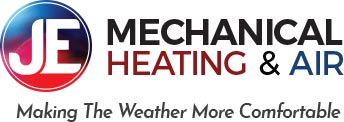Harnessing the power of advanced technology and smart engineering, Industrial HVAC Air Balancing has emerged as a revolutionary approach to achieving optimal energy efficiency and enhanced comfort within industrial environments.
At its core, Industrial HVAC Air Balancing is the fine-tuning of the heating, ventilation, and air conditioning (HVAC) system, ensuring that it distributes air evenly throughout a building. This not only delivers an improved level of comfort but also significantly reduces energy usage, resulting in substantial cost savings.
Join us as we navigate the complex yet fascinating world of HVAC systems, and discover how a balanced approach can transform energy efficiency and comfort in industrial settings.
Achieving the Perfect Industrial HVAC Air Balance for Energy Savings
1. Understanding Air Balancing and Its Importance
Air balancing is the process of adjusting and optimizing the airflow within an HVAC system to ensure the even distribution of conditioned air throughout a facility. Proper air balancing is vital for several reasons:
- Energy Efficiency: A well-balanced HVAC system operates more efficiently, reducing energy consumption and associated costs.
- Comfort: Uniform temperature and humidity levels contribute to a comfortable work environment, boosting employee satisfaction and productivity.
- Indoor Air Quality: Effective air balancing helps maintain optimal indoor air quality by mitigating the buildup of pollutants and ensuring proper ventilation.
- HVAC System Lifespan: By reducing strain on the HVAC system, air balancing can extend the lifespan of its components and reduce the likelihood of breakdowns or costly repairs.
2. Identifying Air Imbalances in Industrial Spaces
Detecting air imbalances is the first step toward improving system performance. Some common signs that may indicate an imbalance in your HVAC system include:
- Uneven Temperature Distribution: If certain areas within your facility experience significant temperature variations compared to others, it may signal an air balancing problem.
- Excessive Noise: Unusual or excessive noise from the HVAC system can indicate airflow issues, such as blocked vents or ductwork obstructions.
- Recurring System Issues: Frequent breakdowns or the need for repeated maintenance may suggest underlying air balancing concerns affecting system performance.
- Increased Energy Bills: Higher-than-expected energy bills can result from an inefficient HVAC system struggling with air imbalances.
3. Techniques for Achieving Optimal Air Balancing
There are several methods HVAC professionals use to rectify air imbalances and improve system performance, including:
- Ductwork Inspection: Ensuring ductwork is clean, properly sealed, and free of obstructions is essential for efficient airflow. The HVAC specialist can inspect your duct system and recommend necessary repairs or modifications.
- Adjusting Dampers: Dampers control airflow within an HVAC system by opening or closing to regulate the volume of air passing through them. A technician can adjust dampers to balance airflow and achieve desired distribution.
- Testing and Balancing (TAB): TAB is a comprehensive process where HVAC professionals measure airflow, temperature, and air pressure throughout the system and make necessary adjustments to balance the air distribution.
- System Upgrade: In some cases, updating to a more advanced HVAC system or adding supplemental equipment can improve air balancing and overall performance.
4. The Role of Building Automation and Control Systems
Building automation and control systems are pivotal in facilitating efficient HVAC air balancing. Modern control systems can continuously monitor metrics like temperature, humidity, and air pressure throughout a facility. These systems utilize algorithms to analyze the data and automatically adjust to maintain optimal comfort and energy efficiency.
Incorporating building automation and control systems into your facility’s HVAC can streamline air balancing efforts, maximize energy savings, and contribute to a healthier and more comfortable work environment.
5. The Benefits of Routine HVAC Maintenance
Regular maintenance is essential for maintaining an effectively balanced HVAC system. We recommend implementing a routine maintenance schedule, which can include:
- Filter Replacement: Regularly replace or clean filters to ensure efficient airflow and reduce strain on system components.
- Inspection and Cleaning: Schedule periodic inspections by a professional to identify any wear and tear, obstructions, or inefficiencies and perform thorough system cleaning.
- Preventative Maintenance: Timely preventative maintenance can address potential issues before escalating and impacting system performance or comfort levels.
By prioritizing ongoing maintenance, you can safeguard the integrity of your HVAC system, maintain optimal air balancing, and extend the overall lifespan of your equipment.
6. Engaging the Support of HVAC Professionals
Air balancing in industrial HVAC systems is a complex process best entrusted to experienced professionals. We are well-versed in identifying and addressing air balancing issues, ensuring that your facility benefits from optimal HVAC performance, energy efficiency, and comfort.
Our team of skilled technicians has the expertise and resources to diagnose, rectify, and maintain proper air balancing within your HVAC system. By collaborating with HVAC professionals, you can secure reliable, long-lasting solutions and maintain a comfortable and productive work environment.
Achieve Optimal Performance with Industrial HVAC Air Balancing
Indeed, Industrial HVAC air balancing is not just about energy savings. It’s about creating a comfortable, healthy, and productive environment for everyone in the facility. It’s a strategic investment that pays off in numerous ways, making it a must-have for any forward-thinking industrial enterprise.
As experienced HVAC service providers in Atlanta, we are dedicated to assisting our clients in achieving optimal air balancing and superior system performance. JE Mechanical HVAC, Corp. can accurately diagnose and resolve air balancing issues, perform necessary system upgrades, and support you with ongoing maintenance to ensure the highest level of efficiency and comfort.
If you’re seeking reliable solutions for your industrial HVAC air balancing needs, contact us today to discuss your requirements and let our skilled professionals provide the expertise and support your facility deserves!




